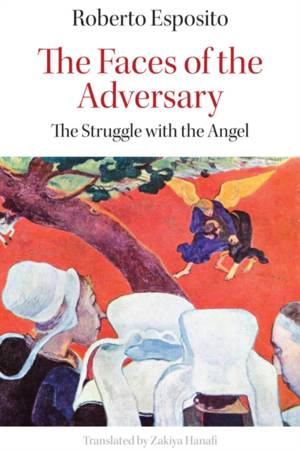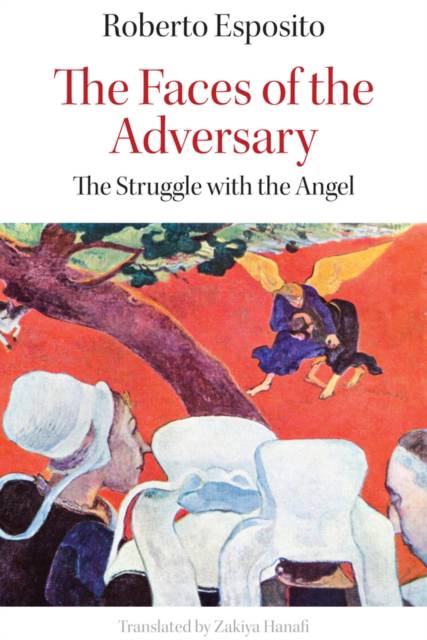
- Retrait en 2 heures
- Assortiment impressionnant
- Paiement sécurisé
- Toujours un magasin près de chez vous
- Retrait gratuit dans votre magasin Club
- 7.000.0000 titres dans notre catalogue
- Payer en toute sécurité
- Toujours un magasin près de chez vous
The Faces of the Adversary
The Enigma of Jacob and the Angel
Roberto Esposito
Livre broché | Anglais
27,95 €
+ 55 points
Format
Description
Roberto Esposito's poetic and historically layered new book draws on a famous, and famously opaque, passage from the Old Testament to shed light on the vision of self and domination that has profoundly shaped Western identity and left its mark on Western culture. These ten lines from Genesis tell the tale of Jacob wrestling with a mysterious adversary on a riverbank. But who exactly is Jacob wrestling with - the divine? Evil personified? Absolute otherness? Or the deepest, most subconscious self? Who, in other words, is the adversary? The angel's identity is shrouded in mystery until we realise that the challenge it presents arrives from Jacob's unconscious depths, repressed and projected. Interchangeable and yet never resolved, these entwined adversaries speak to our great desire to come face to face with personal truth, even if only for an instant, while coming to terms with its fleeting impermanence. Casting a wide net, Esposito connects his reading of Jacob and the Angel to the fundamental relationship between self and adversary inherited by the modern West and explores the extraordinary influence this story has had on Western culture, from philosophy and theology to literature, politics and art. Roberto Esposito's poetic and historically layered new book draws on a famous, and famously opaque, passage from the Old Testament to shed light on the vision of self and domination that has profoundly shaped Western identity and left its mark on Western culture. These ten lines from Genesis tell the tale of Jacob wrestling with a mysterious adversary on a riverbank. But who exactly is Jacob wrestling with - the divine? Evil personified? Absolute otherness? Or the deepest, most subconscious self? Who, in other words, is the adversary? The angel's identity is shrouded in mystery until we realise that the challenge it presents arrives from Jacob's unconscious depths, repressed and projected. Interchangeable and yet never resolved, these entwined adversaries speak to our great desire to come face to face with personal truth, even if only for an instant, while coming to terms with its fleeting impermanence. Casting a wide net, Esposito connects his reading of Jacob and the Angel to the fundamental relationship between self and adversary inherited by the modern West and explores the extraordinary influence this story has had on Western culture, from philosophy and theology to literature, politics and art.
Spécifications
Parties prenantes
- Auteur(s) :
- Traducteur(s):
- Editeur:
Contenu
- Nombre de pages :
- 224
- Langue:
- Anglais
Caractéristiques
- EAN:
- 9781509567805
- Date de parution :
- 20-04-26
- Format:
- Livre broché
- Format numérique:
- Trade paperback (VS)

Seulement chez Librairie Club
+ 55 points sur votre carte client de Librairie Club
Les avis
Nous publions uniquement les avis qui respectent les conditions requises. Consultez nos conditions pour les avis.





